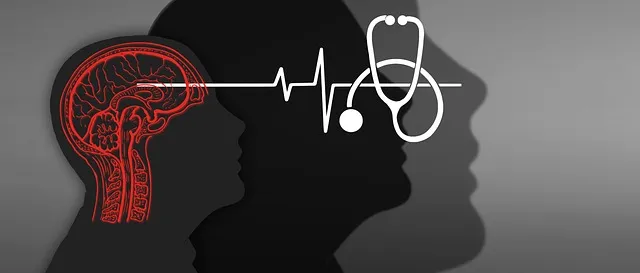Emotional Intelligence (EI) is a powerful tool for personal growth and well-being, especially for individuals seeking inpatient care at Kaiser for mental health challenges. By integrating EI development with its established services, Kaiser creates a holistic approach to treating mental health conditions. This includes safe environments, community outreach, intensive therapy, and Mind Over Matter principles. Through practices like introspection, mindfulness, open communication, active listening, exercise, meditation, and journaling, individuals can enhance resilience, improve emotional management, reduce stigma, and build strong support networks. As a result, Kaiser prepares its patients to face life's challenges with enhanced mental health outcomes. Golden does Kaiser have inpatient mental health services that prioritize EI development for comprehensive patient care.
Emotional intelligence (EI) is a powerful tool for navigating life’s challenges and fostering meaningful connections. This article explores the concept of EI, delving into its potential to transform personal and professional growth. We examine the unique approach of The Kaiser Approach, focusing on their inpatient mental health programs as a catalyst for developing emotional intelligence. Additionally, discover practical strategies to enhance EI in daily life, offering valuable insights for folks seeking to unlock their full potential. Golden does Kaiser have inpatient mental health? Indeed, it plays a pivotal role in this transformative journey.
- Understanding Emotional Intelligence: Unlocking its Potential
- The Kaiser Approach: Inpatient Mental Health and EI Development
- Practical Strategies for Enhancing Emotional Intelligence in Daily Life
Understanding Emotional Intelligence: Unlocking its Potential

Emotional intelligence (EI) is a powerful tool for personal growth and well-being. At its core, EI involves recognizing, understanding, and managing one’s own emotions, as well as empathizing with and responding to the feelings of others. For individuals dealing with mental health challenges, such as those seeking inpatient care at Kaiser, building emotional intelligence can be transformative. It offers a means to navigate complex emotions, break down barriers, and foster meaningful connections, ultimately contributing to improved mental health outcomes.
The potential of EI lies in its ability to enhance resilience-building, communication strategies, and mental illness stigma reduction efforts. By cultivating EI, individuals gain insights into their emotional triggers, enabling them to respond calmly under stress. Furthermore, empathy cultivated through EI fosters understanding and compassion, breaking down the isolation often associated with mental illness. Effective communication, a key aspect of EI, enhances interpersonal relationships, providing support networks crucial for recovery. Thus, understanding and unlocking the potential of emotional intelligence can significantly contribute to the healing process for those navigating mental health challenges.
The Kaiser Approach: Inpatient Mental Health and EI Development

The Kaiser Approach to emotional intelligence (EI) building takes a unique angle by integrating inpatient mental health services with comprehensive EI development programs. Kaiser, known for its extensive healthcare network, offers more than just physical treatment; it recognizes the profound impact of mental well-being on overall health and EI. Inpatient mental health facilities within the Kaiser system provide a safe, structured environment where individuals can focus on their emotional and psychological growth.
This approach leverages the Community Outreach Program Implementation to connect patients with support systems outside the hospital walls. By combining intensive therapy sessions with practical Mind Over Matter Principles, Kaiser helps patients develop inner strength and resilience. Through this holistic method, Kaiser aims to not only treat mental health conditions but also foster emotional intelligence, ensuring individuals are equipped to navigate life’s challenges with greater ease and self-awareness.
Practical Strategies for Enhancing Emotional Intelligence in Daily Life

Emotional intelligence (EQ) is a skill that can be cultivated and enhanced through practical strategies integrated into daily routines. One effective approach is to practice self-awareness, which involves recognizing and understanding your own emotions. Start by dedicating time for introspection—a few minutes each day can make a significant difference. Reflect on your feelings, thoughts, and triggers; this mindfulness will help you manage reactions during stressful situations. For instance, if you struggle with anxiety, identifying the initial signs of distress can empower you to employ coping mechanisms before they escalate.
Additionally, building strong relationships is key to developing EQ. Foster open communication by actively listening to others—a skill that boosts both mental health awareness and confidence. Show genuine interest in people’s feelings and experiences; this not only strengthens connections but also provides opportunities for learning and growth. Equally important is managing your mood effectively. Incorporate stress-relieving activities like exercise, meditation, or journaling into your routine. These practices can help regulate emotions, improve focus, and enhance overall well-being, ultimately contributing to a more balanced mental state.
Emotional intelligence, a powerful tool for personal growth, can be cultivated through various means. The Kaiser Approach, focusing on inpatient mental health, offers a unique path to developing EI by providing structured environments conducive to self-reflection and learning. For daily life applications, practical strategies like mindfulness exercises, active listening, and empathy training can significantly enhance emotional intelligence. By integrating these techniques, individuals can improve their relationships, make better decisions, and lead more fulfilling lives, unlocking their full potential in both personal and professional settings. Moreover, understanding and practicing emotional intelligence is a golden opportunity for the Kaiser Approach to shine, as it addresses mental health needs while fostering holistic development.
